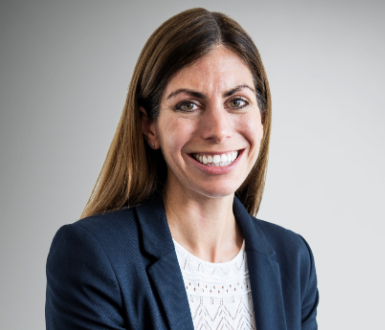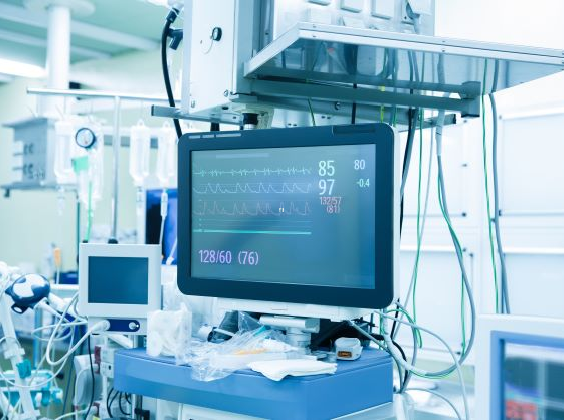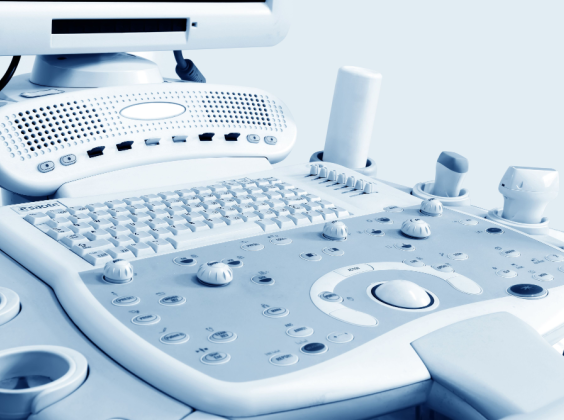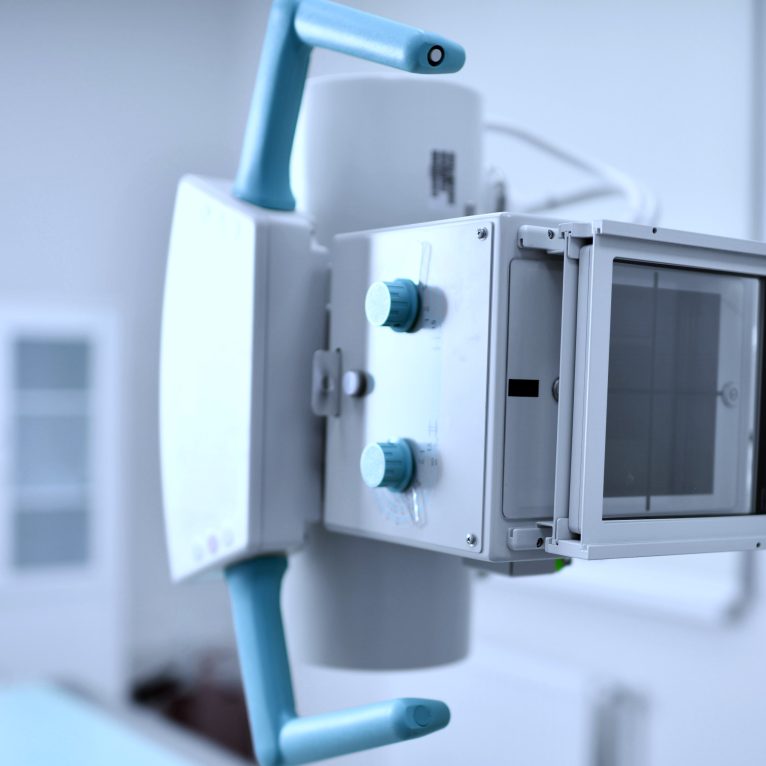
Written by

Cranfield, UK, November 2023 – Analysts from the Medical Imaging and Clinical Care teams recently descended on the MEDICA Trade Fair held in Dusseldorf, Germany. Claiming to be the world’s largest medical show, MEDICA housed over 5,300 exhibitors from over 70 countries during its four-day event. We provide our thoughts on the key trends and developments the analyst team saw whilst at the event.
Trend One: Digital Health Draws in the Crowds
There is no doubt that the age of the digital revolution has been in full force throughout the medical industry in recent years. The pandemic expediated interest in solutions that promised to help drive clinical efficiency and improve patient care provision. Medica didn’t shy away from placing its spotlight on the developments in Health IT and Connected solutions in its focused Hall (Hall 12). The crowds were drawn toward the various pavilions within the hall, such as the Wearables Technology Show, highlighting innovative solutions across fast evolving markets including robotics, internet of things, mobile health, AI, Big Data and machine learning. Strategically placed, the ‘Start-Up Park’ bought together newer entrants into the medical field offering the platform to discuss partnerships and investment opportunities. Highlighted talks assessed development of smart technologies with several discussions focusing on wearable and portable solutions targeted at the growing need for monitoring and treatment of patients in alternative care settings, which is driving initiatives such as hospital to home. Generative AI and Large Language Models (such as Chat GPT) and their growing development in the healthcare market was also a key feature at the show.
One of the panel discussions that seemed to pique interest amongst the audience was on ‘Artificial Intelligence in Healthcare: US & EU Insights’ which was moderated by Jan Beger from GE Healthcare. It featured leaders from both the clinical and industrial sectors, including Dr Anke Diehl, Universitätsmedizin Essen, Pia Maier, Medtronic, Razvan Ionasec, Amazon Web Services (AWS), Roberto Cruz, Idoven and Alexander Olbrechts, MedTech Europe. The panel highlighted the issues with regulation and the ever-evolving definition for the use of artificial intelligence. Although regulations are in place in the form of the MDR in Europe, there is the need for more harmonious regulations. The Artificial Intelligence Act in the European region, due to be finalised by the end of the year, will provide horizontal, cross-sectoral regulation to enable innovation but ensure patient safety in tandem.
Trend Two: MDR Woes Start to Fizzle Out
The movement of MDD to MDR in May 2021 was followed by a surge in confusion and delays. Many vendors were struggling to grapple with the changes in requirements for information and clinical data to support new product submissions. The EU notifying bodies were also less than organised in being able to move submissions through the process in a timely manner, with many submissions cancelled or declined with demands to reapply. However, whilst discussing the impact of MDR at the show, it seems attitudes have started to slowly change and the understanding of what is required is starting to improve. The backlog has started to reduce, and there has been a slow trickle of approvals seen in recent months, albeit from newer vendors. Pressure on manufacturers is still very prominent and many vendors have streamlined portfolios in order to reduce the regulatory burden, but vendors entering new products seem to be gaining approval quicker than those recertifying solutions. Some exhibitors at the show also gave the impression that the focus on patient safety doesn’t seem to quite correlate with the solutions that are gaining approval. Signify Research expects that things will improve and the faith in the MDR to ensure patient safety returns, as the larger vendors start to gain approval for their own solutions.
Trend Three: Asian Vendors Increase Presence in Prestigious Halls
Although not a new trend, it was clear that there was an increase in the number and footprint of Asian vendors in the Halls 9-11, that would have once housed the healthcare powerhouses of GE HealthCare and Philips. Mindray muted their presence, with a much smaller booth than seen in the past focusing on exhibiting its endoscopy solutions. But the likes of Comen, Edan and Biolight stepped up their game, maximising on the uptake they have seen in recent years within the European region. This seemed to go hand in hand with the changing demographic of the show with a clear uptick in the number of distributors and resellers looking for an opportunity to partner with what are sometimes viewed as lower-cost solutions. Although many attendees mentioned that attendance seemed to be down, the number of exhibitors was certainly up from 2022 (5531 in 2023, up from 5223 in 2022).
Many of the Asian vendors have also been quick to meet the growing demand for digital health, coming to market with connected solutions and not shying away from gaining MDR and FDA approval. Signify research recently reported that Comen had managed to gain MDR approval for its fleet of ventilators, ahead of many of the well-known brands in the European market.
Trend Four: Partner to Succeed
To maintain some presence at the show, some vendors joined forces on booths rather than having a dedicated booth themselves. There also seemed to be growing partnerships between hardware and software vendors, and technology platform providers and service providers, in which vendors could demonstrate their solution offering and integration capabilities. This was very apparent amongst booths that offered wearable solutions targeted toward the cardiac and remote monitoring markets. In some cases, even though not present at a booth, thought leaders from the larger manufacturers were actively participating in group panel discussions or presenting within the dedicated Connected Health and IT pavilion. These talks focused on the hot topics impacting the healthcare market, enabling them to demonstrate their mission to tackle issues that many healthcare providers are facing. With the exhibit halls inundated with distributors looking to partner, vendors are no longer competing purely on a technological basis. They must now provide education and value-added support to potential new distribution partners who are looking to navigate the macro-shifts taking place in healthcare.
Final Thoughts
It is interesting to see how the Medica congress has evolved over the last 15 years that I have attended the shows. There has been a definite trend toward an increasing presence of vendors from further afield, looking to partner with newer distributors. Many of the leading vendors have focused their own resources on attending the dedicated congresses for their line of expertise. However, with dwindling budgets, the attitudes to lower-cost vendors are changing and cost is starting to outweigh performance in more recent healthcare technology purchasing decisions. This has been met with excitement from the lower-cost vendors and disruptive start-ups that have now been able to innovate solutions much more quickly than the larger brands, allowing for them to maximise this opportunity and gain traction in Europe.
Related Research
Signify Research Market Intelligence Portfolio provides rolling 12-month coverage of the Clinical Care and Medical Imaging markets. The reports included in each portfolio provide a data-centric and global outlook of the market. The reports blend primary data collected from in-depth interviews with healthcare professionals and technology vendors to provide a balanced and objective view of the market.
About Kelly Patrick
Kelly joined Signify Research in 2020 as a Principal Analyst. She has nearly 15 years’ experience covering a range of healthcare technology research at IHS Markit/Omdia. Kelly’s core focus has been on the clinical care sector, including patient monitoring, diagnostic cardiology, respiratory care, and infusion and associated IT solutions. Kelly holds a BSc degree with honours in Pharmacology from the University of Leeds. In her spare time, Kelly has a passion for running and outings with her husband and three children.
About the Clinical Care Team
The clinical care team provides market intelligence and detailed insights on the clinical care equipment and IT markets. Our areas of coverage include patient monitoring, diagnostic cardiology, infusion pumps, ventilators, anaesthesia and high-acuity IT. Our reports provide a data-centric and global outlook of each market with granular country-level insights. Our research process blends primary data collected from in-depth interviews with healthcare professionals and technology vendors, to provide a balanced and objective view of the market.
About the Medical Imaging Team
The Medical Imaging team provides market intelligence and detailed insights on the medical imaging markets. Our areas of coverage include MRI, CT, X-Ray and Ultrasound. Our reports provide a data-centric and global outlook of each market with granular country-level insights. Our research process blends primary data collected from in-depth interviews with healthcare professionals and technology vendors, to provide a balanced and objective view of the market.
About Signify Research
Signify Research provides healthtech market intelligence powered by data that you can trust. We blend insights collected from in-depth interviews with technology vendors and healthcare professionals with sales data reported to us by leading vendors to provide a complete and balanced view of the market trends. Our coverage areas are Medical Imaging, Clinical Care, Digital Health, Diagnostic and Lifesciences and Healthcare IT.
Clients worldwide rely on direct access to our expert Analysts for their opinions on the latest market trends and developments. Our market analysis reports and subscriptions provide data-driven insights which business leaders use to guide strategic decisions. We also offer custom research services for clients who need information that can’t be obtained from our off-the-shelf research products or who require market intelligence tailored to their specific needs.
More Information
To find out more:
E: enquiries@signifyresearch.net
T: +44 (0) 1234 986111
www.signifyresearch.net


